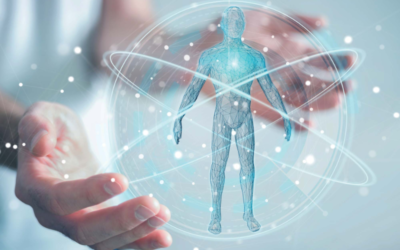Almost all commercial dairies now market their milk as being free of synthetic estrogen compounds, but dairy milk actually accounts for around 60-80% of all the estrogen we consume as humans.
How can this be so?
The main reason is that most milk products originate from pregnant cows that are artificially kept pregnant for about 300 days of the year to maximize production and increase profit. This is done by artificially inseminating a cow while she is still secreting milk from her previous pregnancy.
This practice has been found to raise the amount of estrogen in your milk by about 33 times, in comparison to estrogen levels in milk from non-pregnant cows that have given birth and naturally continue to produce milk for 5-6 months afterward.
In the early 2000s, Danmaa Davaasambuu started looking at why the rate of prostate cancer in Japan had increased 25-fold over the past 50 years. She and a colleague examined 36 years of dietary data from Japan and found a definite correlation between prostate cancer and the consumption of milk.
In a follow-up study, Davaasabamuu found that milk consumption was also related to increased rates of breast, ovarian and uterine cancer in 40 different countries. She believes that part of the reason behind this is the high levels of sex hormones like estrogen that are present in milk products, which have indeed been picked up in various research studies.
Milk has also been found to contain nine other types of hormones, too, such as prolactin, corticosteroids, and insulin-like growth factor. However, the high estrogens are thought to be the most influential when it comes to cancer risk in both males and females.
This could be why studies are now being conducted on how to extract estrogen residues in milk.
How can you reduce the number of estrogens you’re consuming on a daily basis?
Here are some tips:
- Reduce dairy consumption or eliminate it completely which is my advice
- Find healthy equivalents to milk, cheese and yogurt, such as coconut kefir, nut and seed milks and fermented vegan cheeses, such as those made from cashew nuts, which are delicious!
- Eliminate the use of plastics, including plastic bottles and avoid any drinking water from plastic bottles. Plastics are considered xenoestrogens because they attach to the estrogen receptors in the human body with a very strong affinity blocking the activity of the naturally occurring estrogens.
- I recommend purchasing a Berkey water filter which you can find at www.berkeyfilters.com and use this device for cooking and drinking water and getting rid of all plastic storage containers and replacing them with glass containers.
- Never microwave plastic. Ever. In fact, I encourage you to not use a microwave at all. I personally do not own one or use one.
With a very little effort, it’s possible to lower your risks of being affected by the high levels of estrogens found in milk as well as the xenoestrogenic affects of plastics on your endocrine system.
1. http://www.eps1.comlink.ne.jp/~mayus/eng/Bostonmilk.pdf
2. https://www.ncbi.nlm.nih.gov/pubmed/16125328
3. https://www.ncbi.nlm.nih.gov/pubmed/19496976





0 Comments